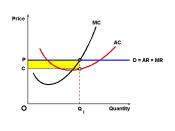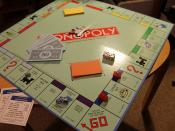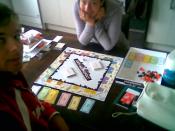Monopolies can be national (royal mail), regional (water companies) or local (petrol station). Unlike a perfect competition situation were firms are 'price takers' and only respond to consumer demand, a monopoly finds itself in an imperfect competition market. In this type of market the firm is more of a 'price maker' and can therefore influence the market price. When comparing monopoly and perfect competition under the same conditions, we can find that the monopolist when in equilibrium produces a lower output and sells it at a higher price than the perfectly competitive firm. Due to the fact that the monopolist holds down output and maintains a high price enables him to make supernormal profits that he can sustain as no other firms can enter the industry.
A monopoly is a situation where the monopolist is the sole supplier or seller in the market. The monopolist can increase the price or restrict output of his product in order to increase sales revenue, as the demand curve is less elastic.
This means that the monopolist faces the entire market demand curve for its output.
There are several different types of monopoly:
- A pure or absolute monopoly is basically a standard monopoly, meaning that there are no close substitutes in the market.
- Technological monopolies involve monopolies were there are high capital costs such as in telecommunications.
- Natural monopolies are when there is only room for one firm within the industry. There are two different types of natural monopoly; the first is the ownership of mineral resources, for example gold in South Africa, or oil in the North Sea. The second is the statutory monopolies established by governments such as the public utilities.
- Lastly there are artificial monopolies, which are deliberately created by firms in order to make...


